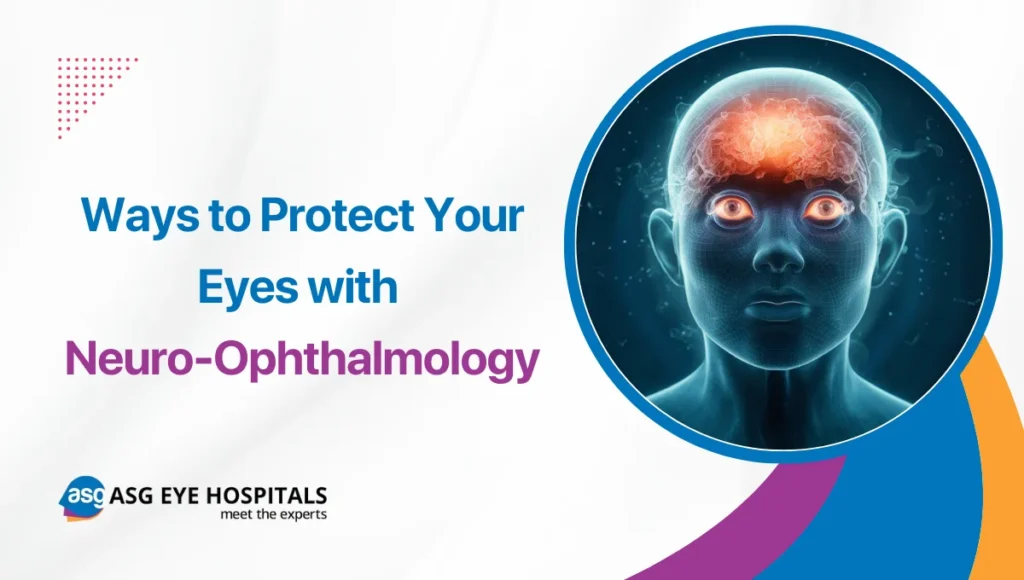Our eyes are not just the windows to the soul, they are organs that give us the sense of sight so that we may begin by navigating the world. Traditional eye care focuses on general health, vision clarity, and refractive errors. Neuro-Ophthalmology deals with a much more specialized kind of care. It combines neurology and ophthalmology that address complex conditions where the nervous system and eye intersect. Eye protection with neuro-ophthalmology involves understanding these intersections and proactively working ways to protect vision health.
What is Neuro-Ophthalmology?
Neuro-Ophthalmology is a subspecialty that has visual disorders related to the nervous system. It caters to the way neurological conditions affect the eye and vision. Conditions focused on include related ones in visual field loss, eye movement disorders, and pupillary irregularities.
The most common disorders that are usually addressed by neuro-ophthalmologists include:
- Optic Neuritis: Inflammation of the optic nerve, generally associated with multiple sclerosis (MS).
- Papilledema: Swelling of the optic disc due to increased intracranial pressure.
- Stroke: Causes sudden loss of vision or visual field defects.
- Brain Tumors: Affecting visual pathways.
- Traumatic Brain Injuries: One can suffer from vision disturbances and problems with eye movement.
How You Can Protect Your Eyes by Neuro-Ophthalmology
Eye protection with Neuro-Ophthalmology provides specialized care to safeguard vision and address neurological influences on eye health effectively.
1. Regular Comprehensive Eye Exams
Regular comprehensive eye exams can facilitate early detection of conditions likely to have a neurological basis with a regular eye exam. Besides, an ophthalmologist will undertake detailed assessments with tests on visual acuity, visual field, and eye movement. These assessments help early detection of any abnormality related to optic nerve damage or some alteration in the visual pathways, hence regular eye exams are essential for early intervention and healthy vision.
2. Monitoring and Management of Chronic Conditions
Chronic conditions like diabetes, high blood pressure, and autoimmune disorders are directly related to the health of your eyes. For example, diabetes can present as diabetic retinopathy, and damage to the optic nerve health as well should be monitored and managed regularly with your primary care physician and neuro-ophthalmologist. Proper blood sugar levels, blood pressure, and cholesterol control may prevent or decrease associated visual complications.
3. Neuroscience Symptoms – Be Alert for Them
If you have these symptoms, contact a doctor immediately: sudden vision loss, continuous headaches, double vision, or any disturbance in eye movement. These might be symptoms of some hidden neurology diagnosed by a neuro-ophthalmologist. An early diagnosis and treatment prevent permanent vision loss and address potential neurological conditions.
4. Protective Measures Against Trauma
TBI and head trauma can have serious consequences for the health of one’s eyes and vision. Protective eyewear is strongly advised during any activity that means a risk to the eyes, such as active sports, construction work, or machinery. In many instances, ophthalmologists may advocate protective eyewear to avoid injury that turns into florid visual and neurologic problems.
5. Develop Good Health Habits
It also keeps the brain and eyes healthy. A diet rich in antioxidants, omega-3 fatty acids, and vitamins may support eye and neurological health. Regular Physical exercise and eye exercise improve circulation which can benefit the eyes and the brain. Avoid smoking and excessive consumption of alcohol, which can cause a panoply of problems in the eyes and nerves.
6. Stress Management and Mental Health
Chronic stress and mental health disorders have indirect effects on vision and the nervous system. For instance, through such means, anxiety and depression can further deteriorate visual disturbances or even cause migraine effects on the eyes. Stress management can be achieved through mindfulness, meditation, and therapy to maintain health that minimizes the action of stress on vision.
7. Follow-up Care and Continuous Monitoring
This is important in the case of individuals with preexisting neurological eye conditions or previous eye problems. Continuous monitoring facilitates tracking the progress of conditions and the response to the instituted treatments. All these facilitate timely modifications in the management strategies to prevent further complications.
8. Educational Awareness
One of the most empowering steps in this process could be educating oneself regarding neuro-ophthalmological conditions and things that could affect eye health. This gives you the ability to take proactive action in understanding the symptoms, risk factors, eye care routine, and preventive measures, to take action in cases of need. This may be through engagement with credible sources of information support groups or educational materials for further enlightenment and resource gathering.
9. Personal Risk Profiling
Everyone has individual considerations and risks for neuro-ophthalmological problems. These can be assessed by a neuro-ophthalmologist based on your unique medical history, family history, and current health status. This assessment allows for the personalization of risks unique to you and, therefore, facilitates the implementation of preventive measures accordingly.
Conclusion:
It means eye protection with neuro-ophthalmology—a comprehensive approach that pieces together frequent eye examinations with the management of chronic conditions, swift attention to neurological symptoms, and a healthy lifestyle choice. By knowing how your eyes and nervous system interrelate, you can be proactive in helping to save your vision and general neurological health. You will have more personalized attention from a neuro-ophthalmology specialist, which means care tailored to your unique needs and thus a healthier and more secure visual experience.



